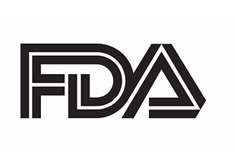FDA Approved Vs. FDA Compliant: Few Things You Must Know About Them
Sep 28, 2021 Food Grade Seals | Oil Seals | Material
The Food and Drug Administration (FDA) is the federal agency of the US government that regulates the safety of food products and drugs for human and animal consumption, medical devices, biologics, cosmetics, and electronic products. In the US, the products falling into these categories are generally labeled and marketed as “FDA approved” or “FDA compliant”. Although these terms are interchangeable, they slightly differ in their approach. Would you be intrigued to know how they differ and why they are important? If that sounds yes, this post answers this question and more.
What does FDA approved and FDA compliant mean?
- FDA Approved: The term “FDA approved” means the product’s benefits outweigh the risks associated with its use, thus it is safe for use. Manufacturers aiming for FDA-approved tags are required to submit an application for premarket approval (PMA) and supporting documents for tests conducted in a clinic to complete this process. The FDA approves the product based on its analysis of clinical trials and impact on human lives. It is more likely to approve the product that may benefit users significantly despite all the risks such as a pacemaker or an artificial heart valve.
- FDA Compliant: This term indicates that the product or material under consideration is safe for food contact. The product is only considered food safe if it is made of materials that have been approved by FDA. These materials are alternately known as food contact substances or FCS.
The FCS material can be used in any food contact applications such as making containers for food storage and packaging, holding and transporting food, and so on.

Which products require FDA approval?
FDA approval is required for products that pose a high risk of injury while offering benefits. These may include over-the-counter medications, prescription medications, and the medical devices identified as Class III. The medical devices labeled under Class III are the ones that are life-sustaining or implanted in the body for regularizing body functions. Having said that, these devices possess the potential to cause bodily harm if not used carefully. Some examples of these devices include replacement heart valves, breast implants, and pacemakers.
The devices that are used in special circumstances as an aid or outside the body are classified into Class I and Class II. Motorized catheters and wheelchairs, and healthcare apps fall under Class I and II respectively.
Can we use FDA-approved products in multiple ways?
No, unless it is specified. For instance, if a particular drug is formulated for the treatment of headaches, it may not be effective in treating stomach pain or back pain. FDA approved means the product must be used in only the way it is intended to be used.
Is FDA compliance only limited to the type of material used?
FDA compliance is not just limited to the type of material used rather it recommends users to ensure:
- The material is used in the safe temperature range.
- The material must withstand the environment where it may be subjected to sanitizing and cleaning.
- The material must be safe for when it comes in contact with moisture, acids, bases, or fats.

Having learned the differentiation between these terms, it is important to source these products and services from a manufacturer who carries a certificate of FDA-approval or FDA compliance. If you are an OEM looking for
FDA approved seals for your equipment or applications, you can source them from SSP Seals. The company provides custom FDA seals for static and dynamic applications in the food and beverage, food processing, and th
 sales:
gm@sspseals.com
Toll Free: +1-888-238-SEAL Request A Quote
sales:
gm@sspseals.com
Toll Free: +1-888-238-SEAL Request A Quote

